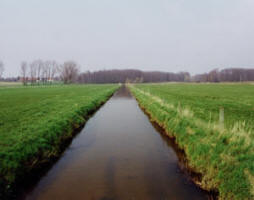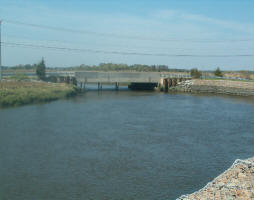 New UNICEF report highlights scale and impact of attacks on water and sanitation facilities on children in conflict-affected countries
New UNICEF report highlights scale and impact of attacks on water and sanitation facilities on children in conflict-affected countries
Attacks on water and sanitation facilities and workers in conflicts around the world continue to put the lives of millions of children at risk and deny children and families access to critical water and sanitation services, UNICEF warned on May 24.
In the 9 countries highlighted in Water Under Fire Volume 3: Attacks on water and sanitation services in armed conflict and the impacts on children – including countries across the Middle East, Africa, Asia, and Europe – almost 48 million people, including children, are estimated to need safe water and sanitation services.
Protecting water and sanitation services is critical to the survival of millions of children. In fragile countries, children under the age of five are 20 times more likely to die due to diarrheal diseases than to violence, and children in extremely fragile contexts are often more than eight times worse off across the water, sanitation, and hygiene indicators than children born into stable and protected environments.
The report examines the immense impact on children and families when water and sanitation infrastructure is attacked, damaged or destroyed, controlled or otherwise restricted in countries besieged by armed conflict. It highlights that children’s access to water has been threatened in nearly every conflict-related emergency where UNICEF is responding.
For example, Eastern Ukraine has experienced four attacks on water infrastructure since the start of the year, with 380 attacks recorded since 2017. Around 3.2 million people need water and sanitation services. Entering its sixth year of protracted conflict, Yemen saw 122 airstrikes on water infrastructure between March 2015 to February 2021. Around 15.4 million people urgently need safe water and sanitation as the cholera epidemic continues to make thousands of children ill every week.
Since 2019, the State of Palestine has seen 95 attacks against 142 water and sanitation infrastructures. More than 1.6 million people live without access to these basic services. The decades-long fragility of Iraq has resulted in massive damage to the water and sanitation infrastructure, leaving 1.85 million people cut off from regular access to lifesaving drinking water and safe sanitation.
In Syria, around 12.2 million people need access to water and sanitation due to heavy infrastructure damage over the past 10 years of conflict. To urgently protect children in conflict and guarantee access to safe and sufficient water, UNICEF is calling for:
- All parties in conflict to immediately stop attacks on water and sanitation services and personnel, and fulfil their obligations to protect children in conflict, including protecting water and sanitation infrastructure;
- States, including Security Council members, to take firmer action to hold the perpetrators of these attacks to account;
- Donors to invest in water and sanitation in conflict situations, as it is the first line of defense against communicable diseases;
- Public to join the call to action to end attacks on children in conflict and add their voice to protect water and sanitation infrastructure and water workers.
| Contact information | n/a |
|---|---|
| News type | Inbrief |
| File link |
https://www.developmentaid.org/#!/news-stream/post/91837/impact-of-attacks-on-water |
| Source of information | developmentaid |
| Subject(s) | RIGHT |
| Geographical coverage | n/a |
| News date | 08/07/2021 |
| Working language(s) | ENGLISH |
 you are not logged in
you are not logged in





